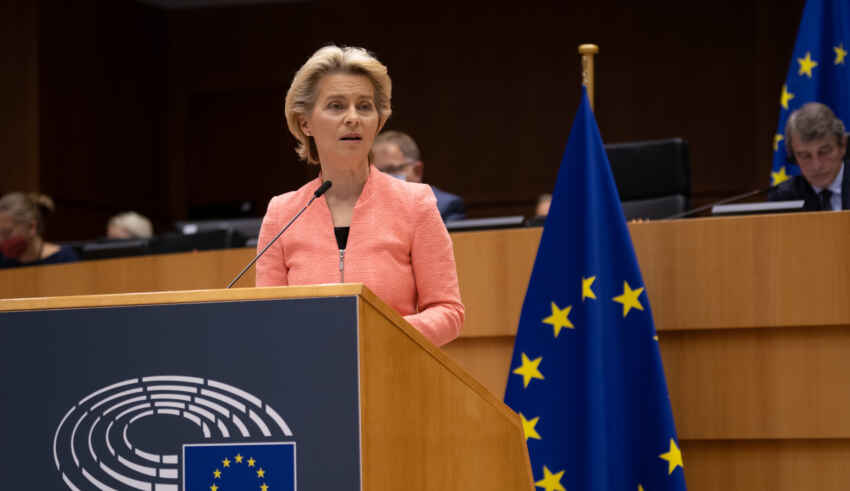
Migration Crisis is becoming one of the main issues for the European Union (EU). There are growing concerns regarding the increase of asylum applications, for instance in 2022 there were 924,000 applications which shows a 50% increase since 2021.[1] Ever since the migration crisis in 2015 and now in 2022 with the Russian invasion of Ukraine, the EU has been working on migratory solutions that will be deemed effective. This migratory pressure has made Member States rely upon the EU to come up with a strategy that would serve to ensure that there is better accommodation to the issue.
In order to ameliorate the situation, the EU is focused on a strategy for effective returns and reintegration of third-country nationals (TCNs). The aim is to maintain an effective return system that would guarantee the protection of the migrants’ fundamental rights by preventing unsafe and irregular migration. There is high emphasis on the implementing strategies that will promote a common system of return within EU Member States.
Third countries form an essential element for the readmission phase, as return is impossible without tight collaboration.[2] But one question that arises is the degree of effectiveness through voluntary action, will all TCNs who have exhausted their legal sources apply for a return? Collaboration make sure that third countries are ready to receive these migrants but does not necessarily mean that the migrants themselves are willing to go.
The discourse on return has been seen as a bone of contention within the EU and has always focused on the humanitarian side of things by ensuring protection, for instance with the recanting of directives and regulations i.e. the Return Directive, asylum Procedure Regulation, Asylum and Migration Asylum Regulation. There has been a continuous effort to guarantee a common return system with collective efforts to “… ensure humane, effective and sustainable return…”[3] and support returns from third countries which are the common transit countries, those being Turkey, North Africa and Western Balkans. These countries are targeted as the main focus of the return of migrants that do not need protection.
However, this plan is met with multiple challenges one of which is having as a main actor the European Border and Coast Guard Agency (Frontex). In order for this strategy to be efficient it depends on the voluntary application to return, Frontex plays a key role in order to implement this strategy effectively because it is responsible for coordinating return operations.[4] Be this as it may there are many non-EU nationals illegally staying who end up refusing to comply with the return decision of this agency. As it stands there is a lack of data on the voluntary return of migrants, this becomes an issue due to the fact that there is limited information to compare how to actually improve efficiency.
The approach to migration also falls back on the plan of cooperation this is because the European Commission, Frontex and Member States work together with the countries of return, securing the essence of effectiveness. Unfortunately, this may create a form of pressure because according to Frontex only a few Member States are responsible for the returns,
An economic incentive is always provided by the EU in order to confirm there is a betterment of the conditions of third countries which allows them to accommodate asylum seekers and migrants, discouraging them from pursuing European countries.
It would seem like a perfect strategy preventing many of crossing the central Mediterranean, protecting the receiving countries such as Cyprus, Greece, Italy ,and Malta which suffer most as they are at the coastal point. However, if one takes a look at practice at how the strategy is received, it is clear on the financial burden the EU will have to carry in order to make certain the conditions for safety and sustainability of life is possible. For those migrants to no longer seek better conditions or better forms of security there is need for employment, better housing, sense of living, etc. People need to feel as they can start a life in third countries to avoid moving. From this line of taught, in order to be effective the EU should warrant that there are financial support at a level that can industrialise countries responsible of keeping people in the country, this reduces the burden of countries that serve as host to suffer from high criminal rate, death rates, unsanitary conditions and prevention of human traffickers to have a continuous line of business with people willing to put their lives at risk in search for something better.
Moreover, there should be an advancement of such cooperation that allows the benefits of both sides in which there will be an increase in the return of migrants in the EU and an increase of financial aid for third countries.
Without such advancements, there is a form of inadequacy for the operational perspective.
[1] https://www.euronews.com/my-europe/2023/01/24/brussels-unveils-plan-to-boost-returns-of-irregular-migrants
[2] https://www.epc.eu/content/publications/10_Return_and_readmission.pdf
[3] https://home-affairs.ec.europa.eu/system/files/2023-01/Towards%20an%20operational%20strategy%20for%20more%20effective%20returns_en.pdf
[4] https://www.schengenvisainfo.com/news/frontex-launches-first-high-level-network-on-return-of-illegal-migrants/
By The European Institute for International Law and International Relations.












